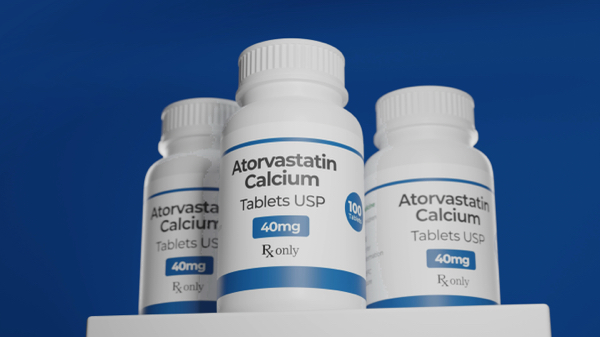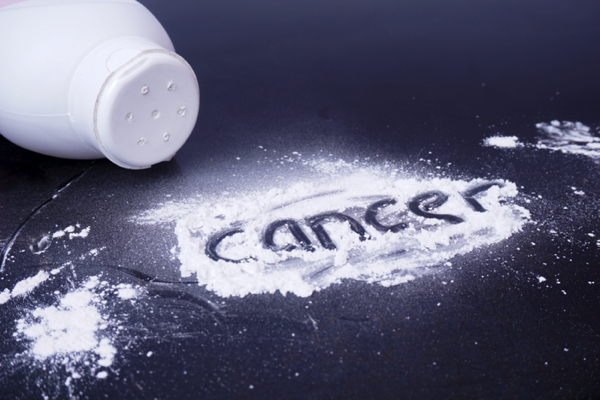ATORVASTATIN RECALL: Over 140,000 pills pulled after failing quality test
10/30/2025 / By Olivia Cook

- Over 140,000 pills of generic atorvastatin, a statin taken by millions, were pulled after failing a key quality test that ensures pills dissolve and absorb properly.
- The issue isn’t contamination–it’s performance. The tablets may not dissolve at the expected time, meaning they might not lower cholesterol as intended, leaving patients unknowingly unprotected.
- The problem is bigger than one recall. Studies show generic pills fail dissolution tests more often and sooner than brand-name versions, underscoring the need for tighter quality control.
- No injuries have been reported. The FDA says the health risk is low, but stopping statins abruptly can be dangerous – always consult your doctor before making changes.
- Stay empowered. Check your bottle’s lot number, talk with your pharmacist and sign up for FDA recall alerts. Being informed is part of protecting your health.
Atorvastatin – the generic form of Lipitor – is one of the most prescribed cholesterol-lowering medications in the world. According to Yale Medicine, about 47 million Americans take a statin daily to reduce heart disease risk.
But the Food and Drug Administration (FDA) recently revealed that several versions of generic atorvastatin calcium tablets failed a fundamental lab test called dissolution testing. The recall, initiated by manufacturers on Sept. 19 and updated Oct. 10, covers 10-, 20-, 40- and 80-milligram strengths, made by Alkem Laboratories Ltd. in India and distributed in the U.S. by Ascend Laboratories LLC. In total, 141,984 bottles were affected nationwide, with expiration dates ranging from July 2026 to February 2027.
The brand name Lipitor is not part of the recall.
What happens after you swallow a pill?
When you swallow a pill, your stomach’s fluids are supposed to dissolve it, releasing the active ingredient so it can enter your bloodstream. Dissolution testing is how scientists confirm that happens that it happens at the right rate and consistency.
If a tablet fails this test, it may not dissolve fully – or quickly enough – for your body to absorb it. That means you might be taking your medication faithfully but not receiving the full dose you need to keep cholesterol under control.
The FDA classified this as a Class II recall, meaning the chance of serious harm is remote but temporary or reversible effects could occur. In other words, your cholesterol might quietly climb without you realizing it.
Why pills fail – and why it’s complicated
According to Ken Boda, dissolution product specialist at Agilent Technologies, the reasons usually fall into four categories:
- Materials – a flaw in the pill’s composition or how it was stored
- Machine – testing or manufacturing equipment that’s misaligned, dirty or vibrating
- Method – a flawed or misinterpreted testing procedure
- Man (human error) – simple mistakes, like using the wrong filter or taking samples at the wrong time
Even small details – like a tablet sticking to the side of a test vessel or forming a “cone” instead of dispersing – can trigger failure.
Boda calls dissolution failures “one of the most frustrating things in the lab,” because pinpointing a single root cause is rarely easy. Investigations can take weeks and, sometimes, manufacturers never find a definitive answer.
A study in the Journal of Pharmaceutical Sciences analyzed 370 FDA field reports of dissolution failures between 2005 and 2014. The researchers discovered a few striking patterns:
- Modified-release (MR) drugs – those designed to release medicine slowly – fail more often than immediate-release (IR) tablets.
- Generics tend to fail sooner in their shelf life than brand-name versions.
- About one-third of the manufacturers studied were unable to determine the root cause of the failure.
That does not mean generic drugs are unsafe. They remain a vital, affordable option for most patients. However, it highlights how even slight differences in formulation or production can impact a medication’s behavior long after approval.
Quality, it turns out, isn’t a one-time promise. It is an ongoing responsibility.
In rare cases, investigations have revealed that companies didn’t handle test failures transparently. Past FDA enforcement records show situations where laboratories adjusted procedures rather than fixing underlying production problems – a reminder that pharmaceutical safety ultimately depends on data integrity and regulatory vigilance.
What does this mean for you?
If you take atorvastatin – or any statin – here’s what health experts and the FDA advise:
- Don’t stop your medication abruptly. Discontinuing statins without supervision can sharply raise cholesterol and heart attack risk.
- Check your pill bottle. Look for the manufacturer (Ascend Laboratories or Biocon Pharma) and these affected lot numbers: 25141249, 24144938, 24144868, 24144458, 24143994, 24142987 and 24143316. If your label matches, contact your pharmacist.
- Consult your doctor. They can verify whether your supply is part of the recall and switch you to a safe alternative if needed.
- Store medicines correctly. Heat and humidity can degrade tables and accelerate failure.
- Stay informed. Sign up for free FDA recall alerts or ask your pharmacist to notify you of future recalls.
BrightU.AI‘s Enoch says: “The story of the atorvastatin recall isn’t one of scandal – it’s one of awareness. It teaches us that the safety net around our medicines is intricate, imperfect and always evolving. Dissolution testing may sound like obscure lab jargon, but it’s really a promise – a way of saying that the pill you take will do what it’s meant to do. When that promise falters, vigilance steps in.”
Learn more about dissolution by watching the video below.
This video is from the Daily Videos channel on Brighteon.com.
Sources include:
Submit a correction >>
Tagged Under:
Alkem Laboratories Ltd., Ascend Laboratories LLC, atorvastatin recall, brand name versions, dissolution failure, dissolution testing, drug performance, generics, harmful medicine, immediate release drugs, modified release drugs, statins
This article may contain statements that reflect the opinion of the author




















